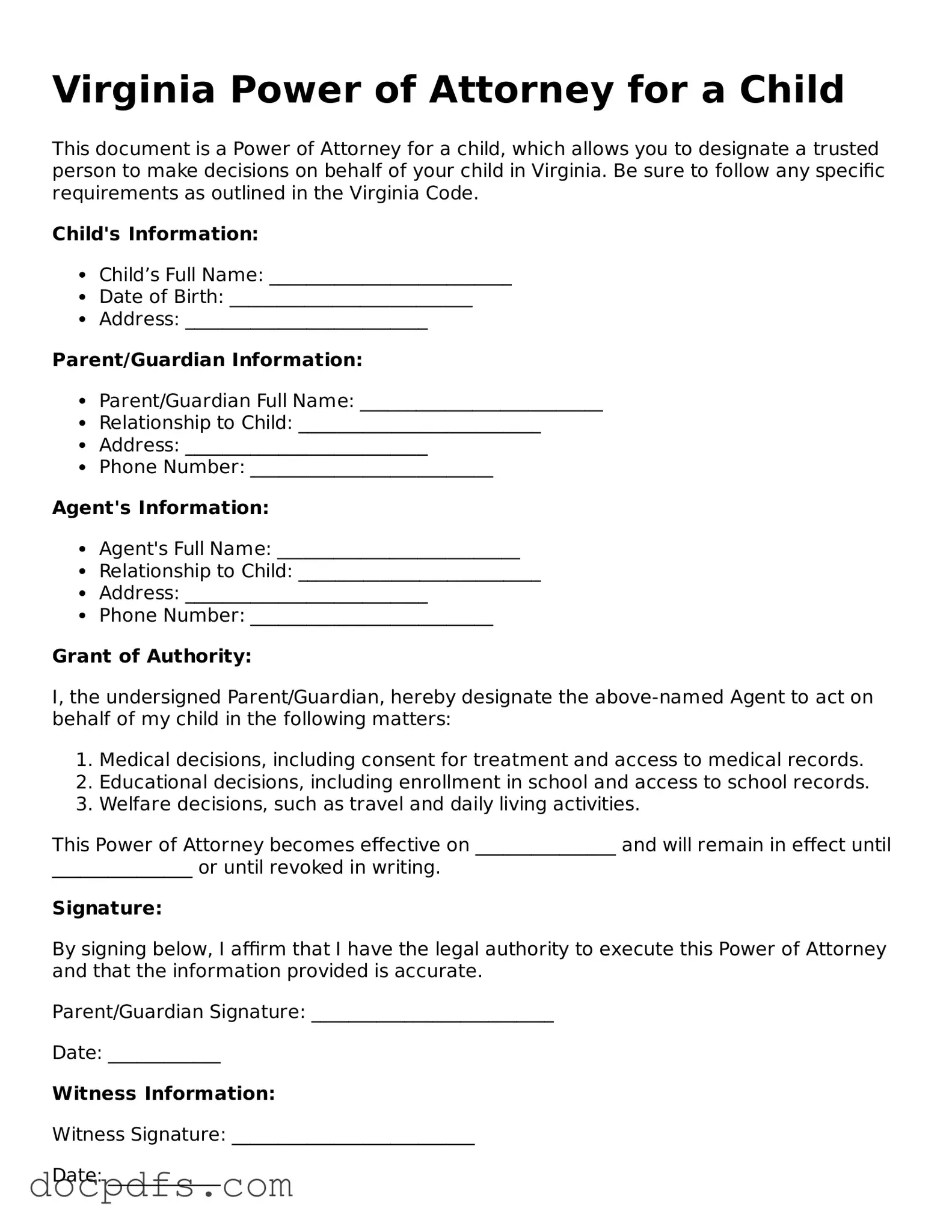Free Virginia Power of Attorney for a Child Form
The Virginia Power of Attorney for a Child form allows a parent or legal guardian to designate another adult to make decisions on behalf of their child. This legal document ensures that the designated individual can act in the best interest of the child, especially during times when the parent is unavailable. Understanding this form is essential for parents who want to ensure their child's well-being in their absence.
Open Power of Attorney for a Child Editor Now

Free Virginia Power of Attorney for a Child Form
Open Power of Attorney for a Child Editor Now

Open Power of Attorney for a Child Editor Now
or
⇓ Power of Attorney for a Child
Finish this form the fast way
Complete Power of Attorney for a Child online with a smooth editing experience.